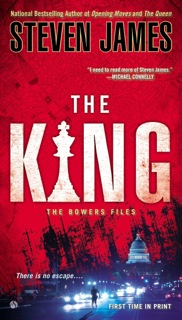 by Steven James
by Steven James
Note from Jodie: I’m busy trying to sell my house and getting ready to move across the country, so I invited Steven James, one of the nicest and most talented writers and presenters I know, to fill in for me, and he graciously accepted. He has some excellent advice for fiction writers for pumping up your creativity and coming up with new ideas for your stories. Take it away, Steven!
* * *
Thanks, Jodie. Great to visit The Kill Zone.
Most of us know what it feels like to be uncreative—our ideas are stale and dry, our writing is boring and predictable. We long to inject our stories with ideas that are fresh, original, inventive, and spontaneous.
But how do you do it?
Here are four ways:
1. Explore Your L.I.F.E.
When you don’t know where else to turn, explore L.I.F.E., an acronym for Literature, Imagination, Folklore, and Experience. L.I.F.E. is a limitless well of ideas waiting to be tapped into.
Coax new stories from classic plots by setting them in a different time and place; examine your imagination for themes that pique your interest; search through the timeless motifs of myth, fairy tale and folklore; scour the expanses of your own experience to spark new ideas. Let your memories come alive!
Some memories inspire us, others haunt us. Some memories cling to things we own, others hover around places we’ve been. Start with what you have, nurture that fragment of a memory: your teacher’s face, the smell of your grandmother’s cookies, the charming way your father used to whistle, the chill in your soul as you rushed to the hospital, the taste of salt spray that summer at the ocean, how it felt to hold your daughter’s hand for the first time. Turn those memories over in your mind, flesh them out, allow them to breathe.
Every vivid memory is a garden of ripe plot ideas waiting to be harvested.
2. Change Your Perspective
A few years ago while visiting a hotel in Denver, I noticed “EXIT” signs not only above the exit doors, but also at their base. “How odd!” I thought. “Only someone crawling on the floor would need a sign down there!”
Aha.
Whoever placed those signs down low had looked at the doors through the eyes of someone crawling for safety during a fire.
Creativity isn’t “seeing what no one else sees,” it’s “seeing what anyone else would see–if only they were looking.” New ideas are born when we view life from a fresh perspective or peer at the world through another set of eyes.
Keep ideas alive by working backwards and sideways, by peering over your shoulder rather than always staring straight ahead. Remember, you don’t dance in a straight line.
So take a moment and look at your story from another person’s perspective. Step into the shoes of your main character and write a journal entry, a complaint letter, or a love note. Switch your point of view. Write a few paragraphs in first person or third person. Think of how you would respond if you were in the story. Walk through the action, stand on your desk, crawl on the floor. And keep your eyes open for the doors no one else has noticed.
3. Let Serendipity Happen
In Horace Walpole’s 18th century Persian fairy tale The Three Princes of Serendip, the heroes discover new things again and again while looking for something else. From this we get the word “serendipity,” which Walpole defined as “the facility of making happy chance discoveries.”
Fiction pivots upon the hinge of serendipitous discoveries—the detective recalls the victim’s clogged drain while combing her hair, the lawyer realizes the significance of the cell phone when he knocks his off his desk, the spy remembers the secret gadget hidden in his wristwatch. At the time, they weren’t searching for a solution, but they found one. After they’ve tried everything they can think of, the answer comes riding in on the wings of serendipity.
If you’re stuck and drained of ideas, you might be trying too hard. You can’t make happy chance discoveries until you step away, take a break, experience life, and stop worrying about your writing. Relax. Worrying about problems is like looking at bacteria through a microscope—it doesn’t help ‘em go away, it only makes ‘em look bigger. And the longer you stare, the more imposing they appear.
So work smarter, not harder. Break your routine. Go to a movie. Have a cup of coffee. Abstain from octopus. Try writing in a different place or at a different time. Lift weights. Vary your schedule. Get up in the middle of the night. Place yourself in situations where you’re not at ease—risking and responding to new challenges forces you to think creatively and opens the door for serendipity. Do something completely different and let those parts of your brain you’re not even aware of chew on the problem for a while.
Let serendipity work for you.
4. Set Specific Boundaries
A photographer focuses on a single event and snaps the picture, freezing that moment forever. Her picture reveals only a sliver of reality, yet that carefully framed sliver contains a world of meaning. A great photographer knows just what to leave out.
Fiction writers don’t have a viewfinder. The lens we look through is as large as our imagination. And when we can’t think of what to write next, we often try generating more ideas when we really need to set more limits. The skilled photographer is careful to frame her shot just right. The skilled writer is careful to fence in his idea.
Nothing stalls writing more effectively than lack of focus. Freedom to write anything usually ends up becoming an excuse for not writing anything. As William Zinsser notes in On Writing Well, “Every writing project must be reduced before you start to write it.”
So sharpen your focus, clarify your framework, and set some boundaries. What’s your story really about? What’s the theme? The deadline? The word count? If you weren’t assigned any boundaries, set them yourself.
5. Question Your Direction
A Jewish folktale tells of a man searching for paradise. Every night he points his shoes toward his goal and goes to bed. Every morning he steps into his shoes and continues his journey. But one night, a mischievous imp turns the shoes around. The next day the man thinks he’s headed for paradise, but he’s really walking back home. Pretty soon, he ends up back where he started from.
His problem had nothing to do with lack of effort or motivation. He even had a wonderful destination. He just never noticed he was walking in the wrong direction.
That same imp visits writers. He sneaks into our stories and points the plot in the wrong direction. And we keep plugging away, writing page after page of a story that’s headed nowhere.
Sometimes, we write ourselves into a corner. We try harder and harder to scale the walls we’ve erected without ever wondering, “Does this story even need that corner?”
So, always question where you’re going. Don’t assume that you must be going in the right direction just because you’re picking up from where you left off yesterday. Ask yourself, “Is this really the right direction for this story? If not, where did I make the wrong turn?”
Stay on track. Every day when you start writing, make sure the shoes are pointing in the right direction.
Writers – what are some tricks you use to jump-start your creativity?
Steven James is a critically acclaimed, bestselling author of ten novels including Opening Moves, The King, and Singularity. He has taught writing and storytelling on three continents and is a contributing editor to Writer’s Digest. Visit him at http://www.stevenjames.net.

